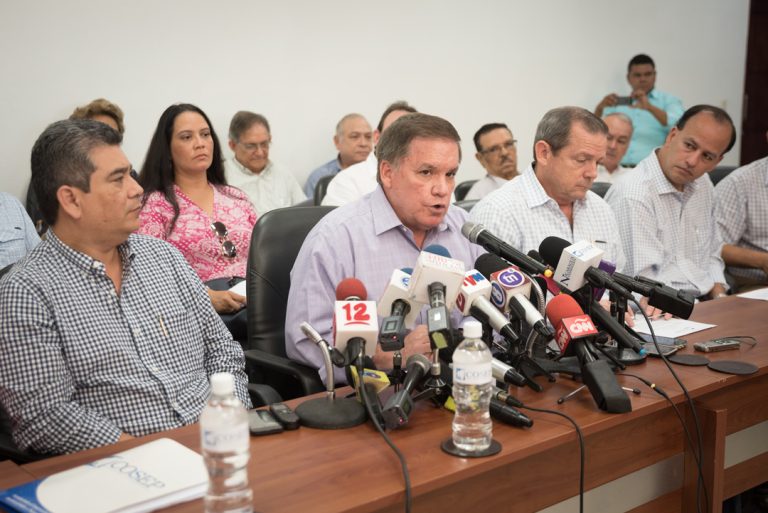15 de febrero 2019

Children of Exile: The Births “Sowing Hope” in the Camp of Nicaraguan Farmers

PUBLICIDAD 1M
PUBLICIDAD 4D
PUBLICIDAD 5D
The Ortega-Murillo government fails to divide the Private Sector.

The Ortega-Murillo government fails to divide the Private Sector.
Private sector sources informed Confidencial that all government efforts to negotiate an economic agreement with business executives, outside of a national political agreement, have failed.
There were some bilateral contacts with President Ortega last year and this year with presidential advisor Bayardo Arce,” the source explained, “but the position of the business groups remains the same: no dialogue on the economic situation until there is a national political agreement leading to early elections.”
According to one source, there is a consensus between the business associations and COSEP (Superior Council of Private Enterprise) on the total rejection of fiscal reforms and the rejection of any economic negotiations outside of political negotiations. Despite the pressures or incentives the government is offering, “the government has failed in its attempt to divide the private sector. No one is accepting the separation of negotiations,” the source emphasized.
Sergio Maltez, second vice president of COSEP, said that he does not know of any high-level contacts to arrange a political negotiation with the government, but he admitted that “something should be arranged, some kind of rapprochement to begin negotiations, but without abandoning the three baseline conditions that COSEP has called for,” freeing the political prisoners, ending the repression and announcing early elections.
Álvaro Vargas, vice president of the Union of Agricultural Producers of Nicaragua (UPANIC) said he was sure that neither COSEP President Jose Adan Aguerri, nor the presidents of any of the different business chambers, participated in any meetings.
“I don’t know if there were any meetings at other levels,” he admitted.
“I know that there is private capital, Sandinista capital involved… everybody moving their chess pieces around to influence a negotiation to resolve the problem in Nicaragua, because if that doesn’t happen, we are all going down the hole,” economically speaking, he clarified.
“There is an ongoing effort to find a negotiated solution with another format, something smaller, that is inclusive and involves the main sectors, five or six people who represent diverse sectors,” he added.
Economist Nestor Avendaño, President of the COPADES consulting group in Nicaragua said that “there is no dialogue. There is no relationship, neither constructive nor destructive, just a lack of government interest to convene the private sector, despite the letter the executives sent to the government in December.”
Archivado como:
PUBLICIDAD 3M
Periodista nicaragüense, exiliado en Costa Rica. Durante más de veinte años se ha desempeñado en CONFIDENCIAL como periodista de Economía. Antes trabajó en el semanario La Crónica, el diario La Prensa y El Nuevo Diario. Además, ha publicado en el Diario de Hoy, de El Salvador. Ha ganado en dos ocasiones el Premio a la Excelencia en Periodismo Pedro Joaquín Chamorro Cardenal, en Nicaragua.
PUBLICIDAD 3D